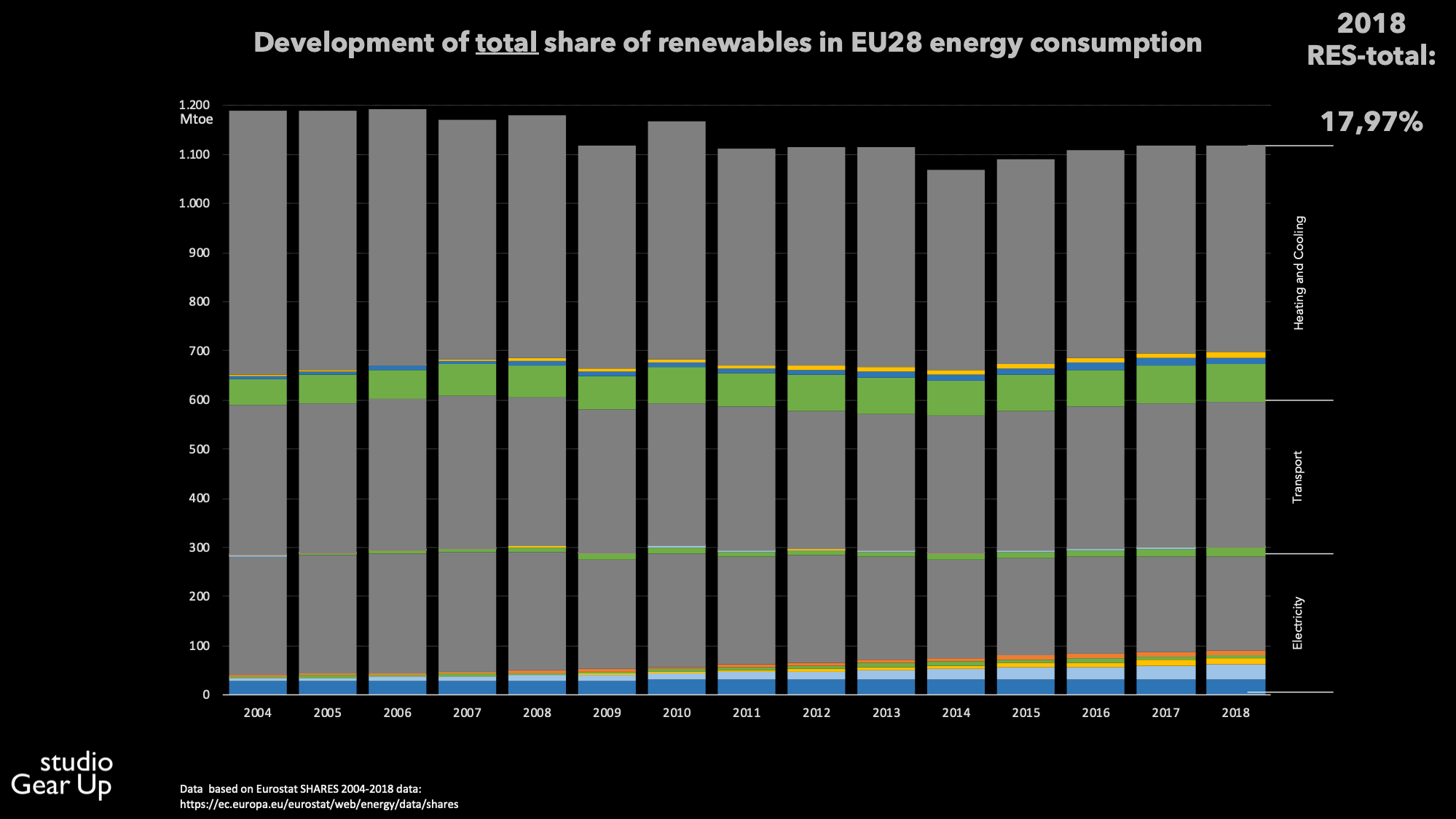
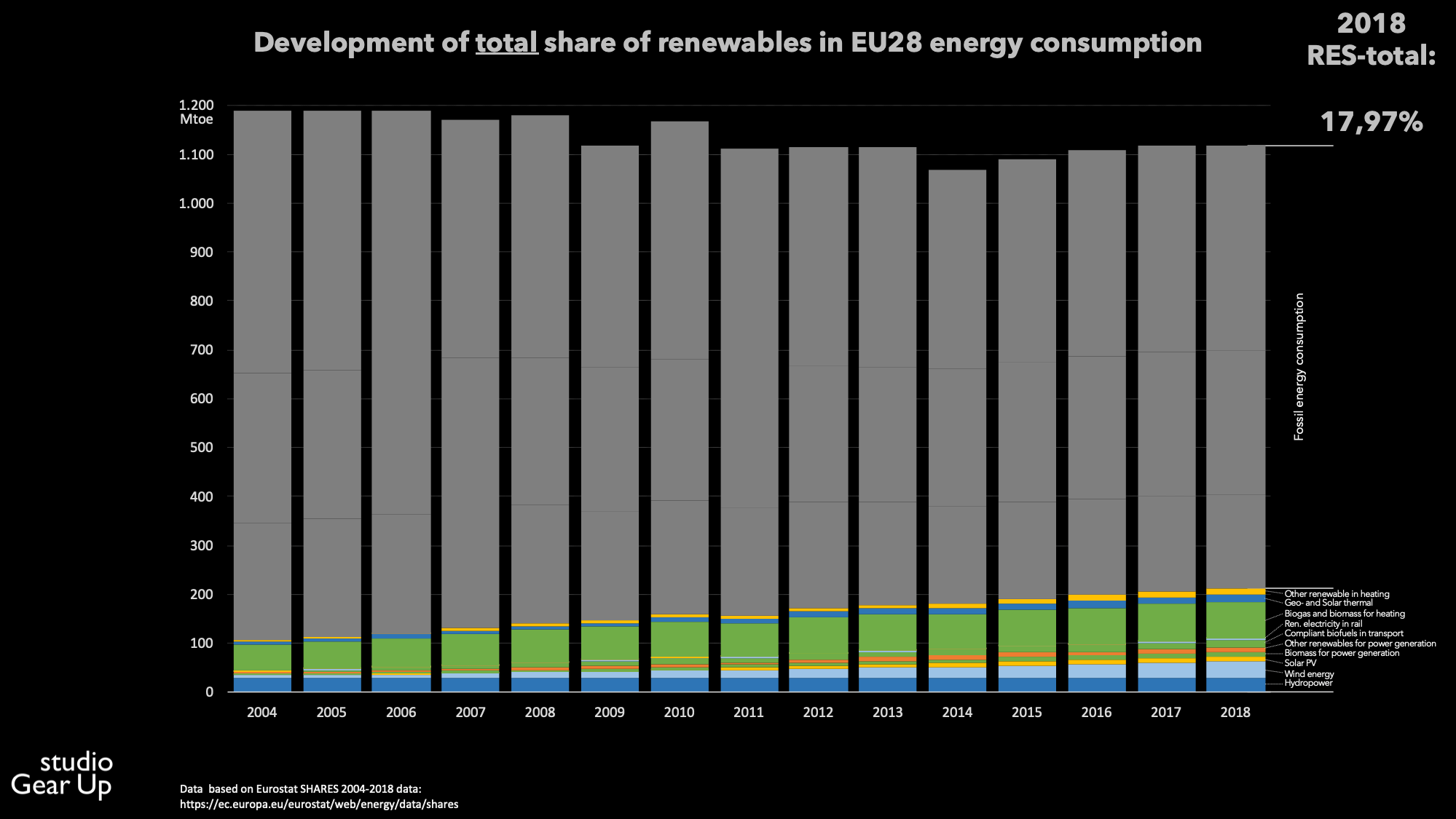
18% renewable energy in total energy use in EU28 by 2018, show data of Eurostat. So more than 80% still fossil. We have to gear up.
Renewable use in heating an cooling provides largest contribution (> 100 Mtoe) in energy demand. Heating and cooling is half of all energy needs and did show decreasing overall demand.
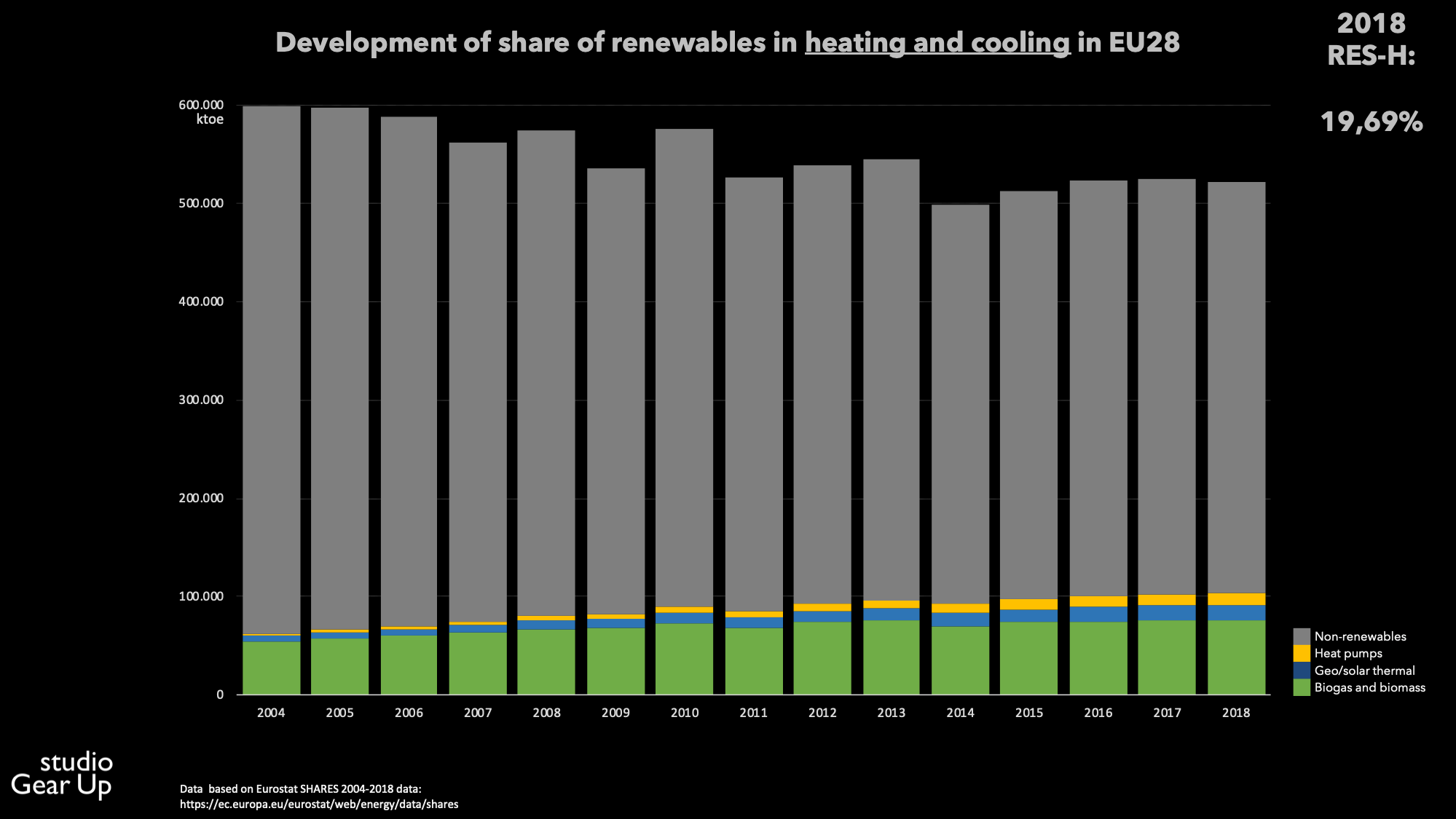
In transport sector (also one fourth of total energy consumed) the physical share of renewables is just nearly 6%. it needs urgent action to quickly reduce the amount of fossil in this sector.
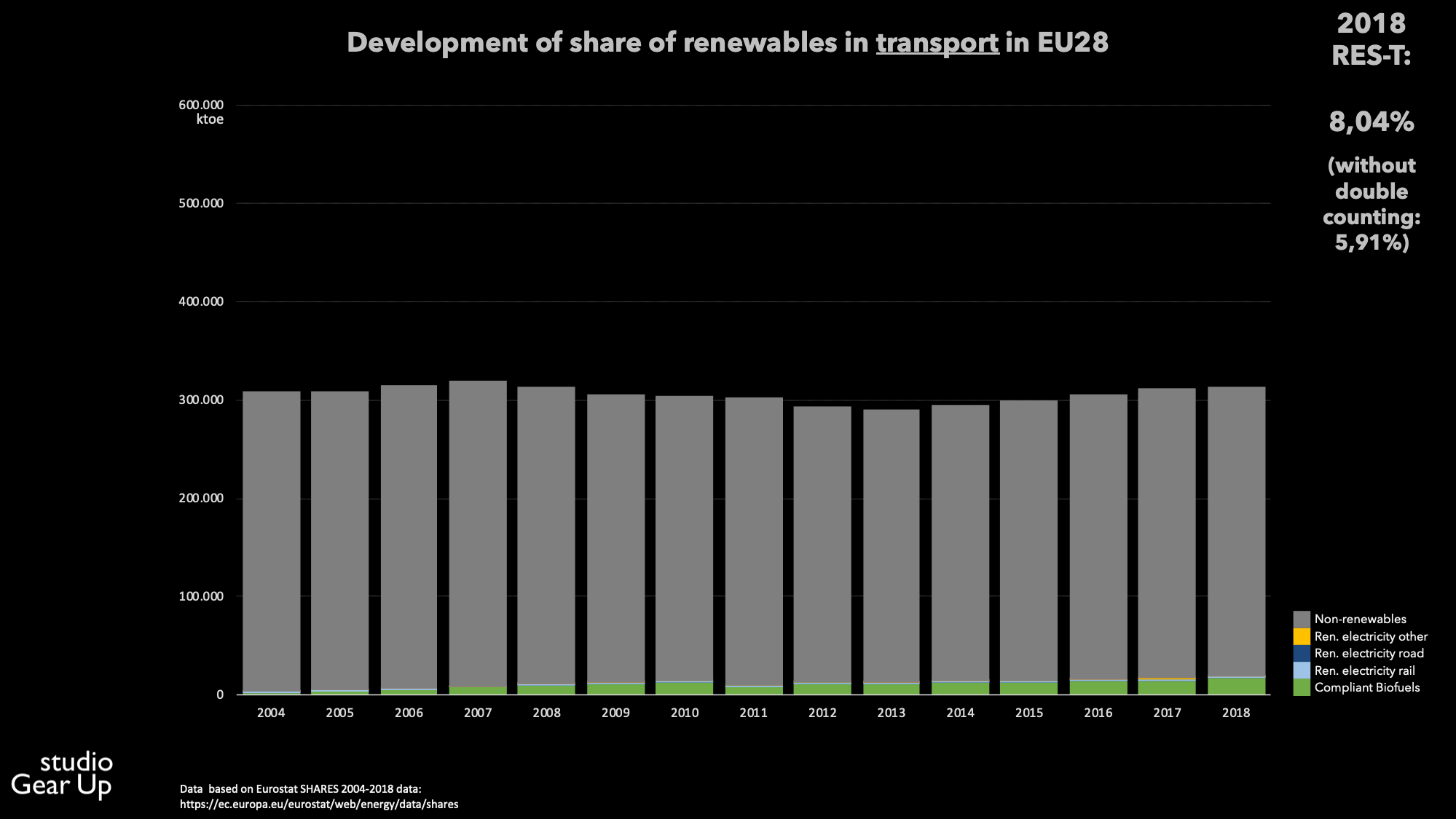
Electricity supply is just one fourth of total energy needs. From that perspective: While the share of renewables has reached 32% in 2018, overall its contribution in total energy consumption is still moderate (88 Mtoe of total 1,100 Mtoe). succes is largely based on strong growth of wind energy and steady level of hydropower. Bioenergy only plays a minor role in electricity generation.
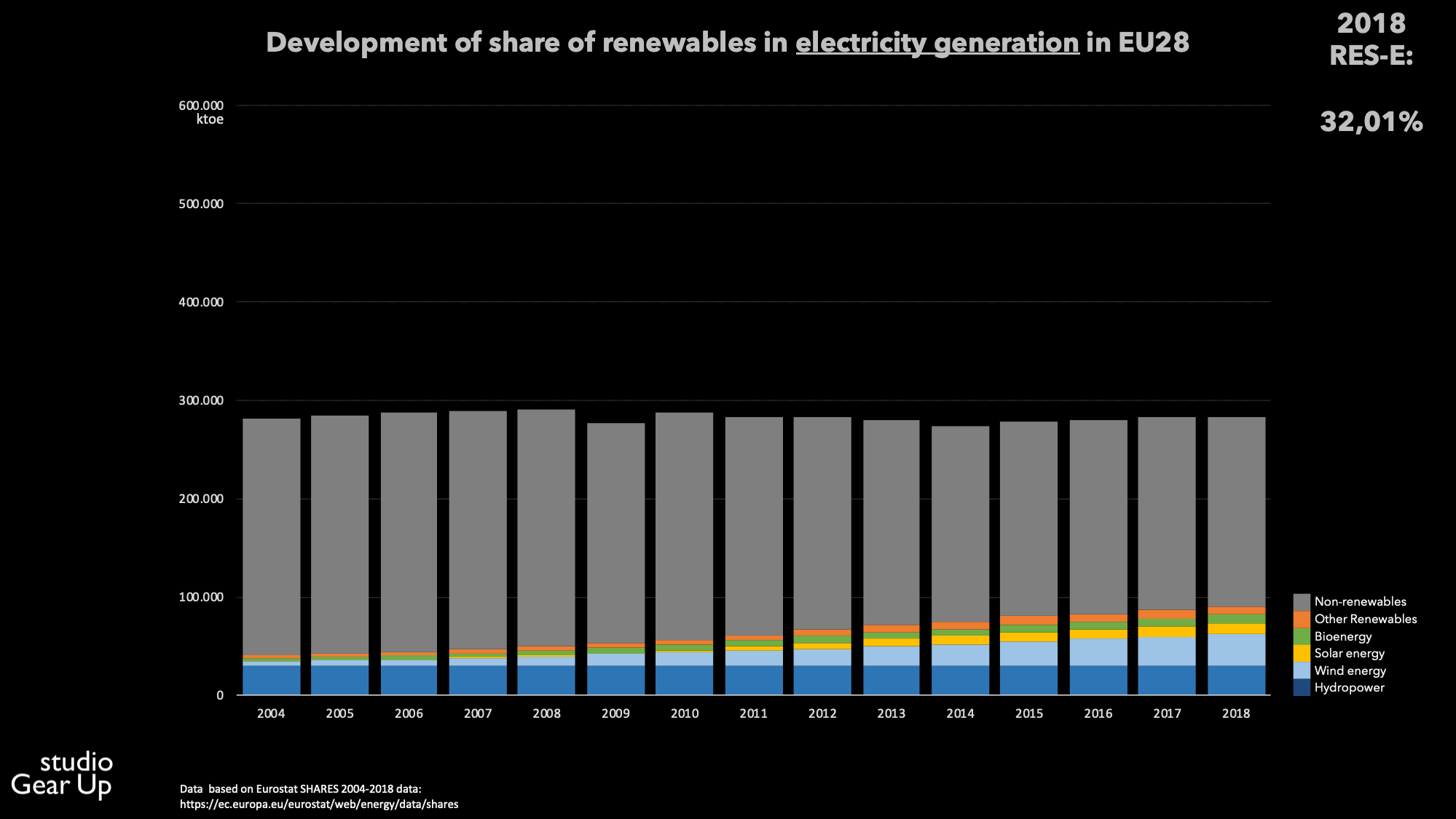
From 2004 to 2014 the total amount of fossil fuels in total energy consumption actually decreased. From 2014 onwards fossil fuel consumption stays quite stable: the growth of renewable only compensates the increase of total consumption. We need to push more to get fossil use down and to prevent depletion of the remaining carbon budget.
Conclusion
In all energy sectors the share of renewables needs to go up rapidly. furthermore, policies should be in place to limit, in absolute terms, the deployment of fossil energy sources in order to prevent unnecessary depletion of the remains carbon budget. It must be considered to switch from targets on the share of renewables to over time decreasing limits to the absolute volumes of fossil energy. It will spur innovations and investments of all renewable energy options and wil further enhance energy efficiency improvements. this will secure fulfilling energy functions of society with as less as possible energy and with predominantly renewables.



